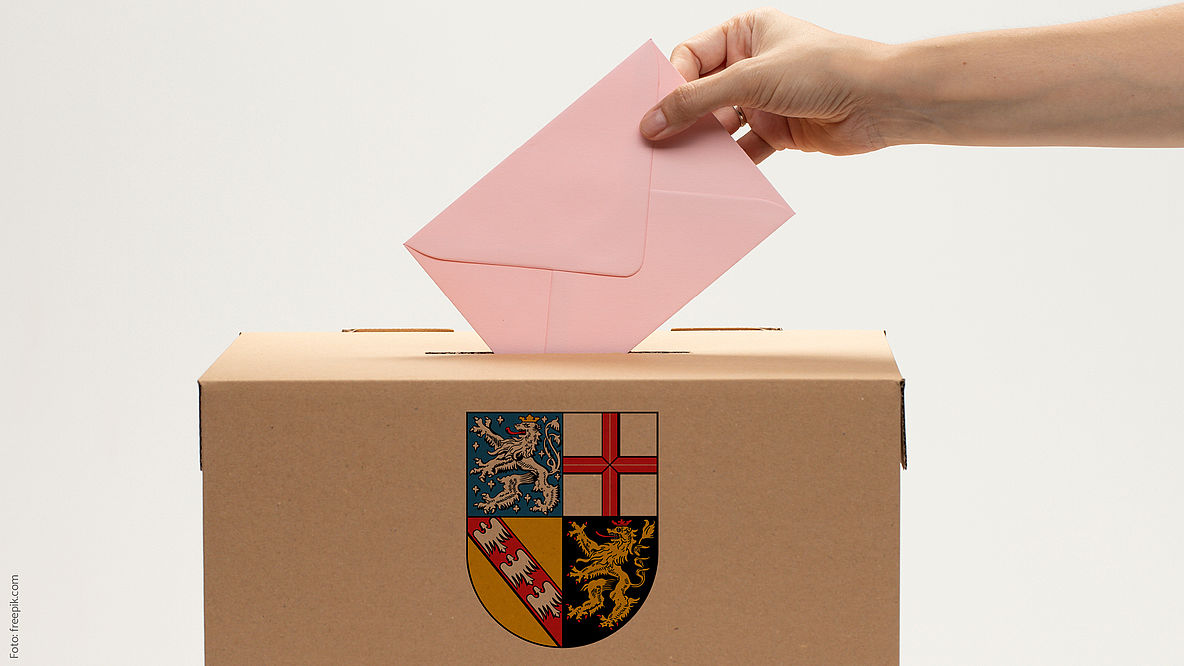Saarland state elections: CDU and SPD want citizens' assemblies

In the run-up to the Saarland state elections on 27 March 2022, the two major parties, the CDU and the SPD, are in favour of the use of randomly selected citizens' assemblies at the state level.
The CDU wants to "promote the use of innovative participation formats such as representative citizens' forums in Saarland in order to involve the people of Saarland in political decision-making on issues relevant to state politics without changing the essence of our representative democracy. In view of the successful application of citizens' forums at national (Ireland), regional (German-speaking Community of Belgium, Baden-Württemberg) and municipal level, there are many possibilities for application in our country as well."
SPD wants climate assembly
The SPD promises that a state government under its leadership will establish a climate assembly. The Greens, FDP and the far right AfD do not comment on citizens' assemblies in their election manifestos.
State parliament president Stephan Toscani had already spoken out in favour of citizens' assemblies in Saarland at the beginning of 2020. "Citizens' forums counteract the polarisation and division of society, so they have a pacifying effect. In addition, the influence of lobby groups is reduced," Toscani said at a meeting with Markus Breit, a participant in the Citizens' Assembly on Democracy to be held in 2019. The caretaker from Ensheim had handed over a copy of the Citizens' Assembly's report to Toscani on 21 January 2020 and explained the Citizens' Assembly idea.
Citizens' assemblies in other federal states
Citizens' assemblies are already on the agenda in other federal states of Germany. For example, the Greens and the CDU in Baden-Württemberg want to open up state and local politics to a broad application of sortition. In their coalition agreement agreed in 2021, both parties announce corresponding reforms. There are to be "citizens' forums with random citizens" on important draft laws. In the state constitution, "bridges are to be built between direct democracy and dialogue-based citizen participation - and thus between citizens and members of parliament".
The Greens and the CDU, for example, want to expand the popular petition. Up to now, such a motion has made it possible for parliament to deal with an issue. The extension is intended to make it possible for a citizens' forum with randomly selected citizens to be held at the Landtag. The latter should be able to accept, adapt or reject the proposals.
Linking citizens' assemblies and referendums
At the municipal level, the participation of randomly selected citizens in local political decisions should take precedence over referendums. This could mitigate polarisation and promote mutual listening. Randomly selected citizens should also be able to have a say in the drawing up of urban development plans.
Almost at the same time, the coalition of SPD, FDP and Greens in Rhineland-Palatinate agreed to test citizens' assemblies in planning and change processes.
Citizens' assembly on citizen participation in Thuringia
In Thuringia, the Left, SPD and Greens believe that the existing instruments of citizen participation need to be reviewed. Some of the previous instruments did not achieve the intended goals of effective participation and direct democracy. Therefore, citizens are to be directly involved in the review via citizens' assembly.
In North Rhine-Westphalia, CDU, SPD, FDP and Greens are also striving to introduce citizens' assembly.
Read more: